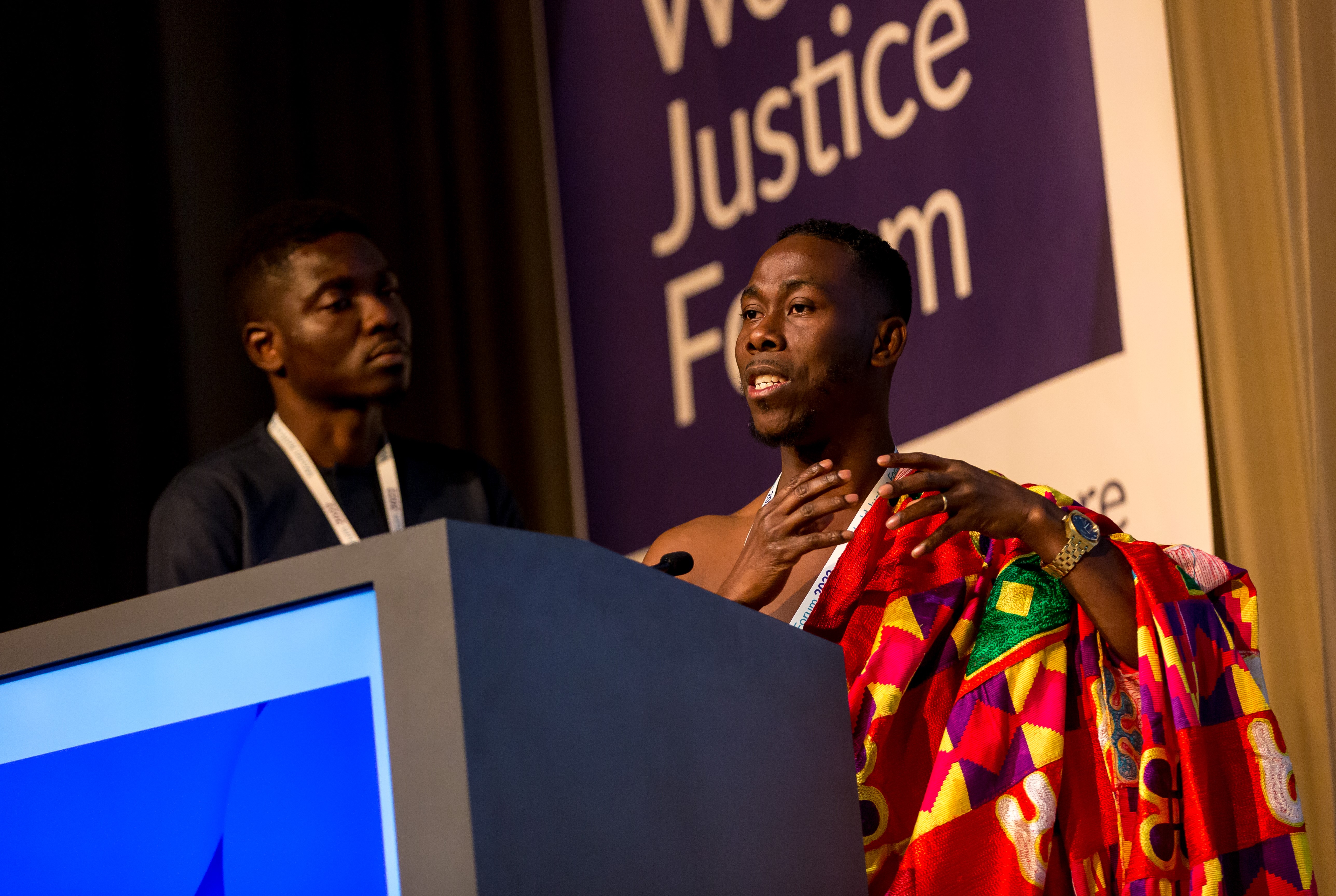

In a nation where the complexities of the criminal justice system have long posed challenges, Ghana has made strides towards criminal justice reform with innovative policy interventions. One such intervention is the state-led Justice for All Program (JFAP) which started in 2007 as a unique partnership between the state (judicial service coordinators) and civil society (POS Foundation facilitators). The program’s objective is to alleviate the longstanding ailment of prison overcrowding through setting up mobile, in-prison special courts that operate throughout the country to adjudicate pre-trial cases. This pioneering approach provides access to justice to pre-trial detainees, many of whom can be held for years awaiting trial due to resource constraints, administrative failures, and other systemic issues in Ghana’s judicial system.
When the COVID-19 pandemic threatened efficient and expedient delivery of justice, the POS Foundation was quick to respond and adapt to such unforeseen challenges by suggesting the idea of carrying out virtual proceedings to the then Chief Justice of the Republic under the “Justice for All Amid COVID-19" initiative in 2020. This progressive reform underscored the program’s commitment to a more fair and efficient legal system.
Since the program began, Ghana's pre-trial prisoner population has drastically reduced from 33% in 2007 to 9.8% as of July, 2023. Jonathan Osei Owusu, the founder and executive director of the POS Foundation, encapsulates the JFAP’s mission as making it possible for “the court to go to the doorstep of the average Ghanaian incarcerated in prison and initiate the process of fair trial and justice.”
The JFAP’s achievement in helping alleviate overcrowding in Ghana’s prisons was recognized at the 2022 World Justice Challenge where it was awarded the Alumni Vote and acknowledged by a network of peers who were finalists in the preceding two cycles of the Challenge. The World Justice Challenge is a global competition to identify, recognize and promote effective and innovative initiatives to protect and advance the rule of law.
In a recent webinar hosted by the World Justice Project (WJP), Owusu discussed how the organization’s work has evolved during the past year amid ongoing challenges to criminal justice reform in Ghana and across Africa. According to Owusu, the most pressing challenges to Ghana’s criminal justice system include prison congestion, case delays, and lack of universal legal representation.
“For a population of over 32 million, the Legal Aid Commission has only 54 lawyers, which makes access to justice for the poor virtually impossible,” Owusu said.
To help mitigate these issues, POS Foundation launched the In-Prison Paralegal Program (IPP) through a pilot at the Nsawam Medium Security Prison in 2019. This program, a complement to the JFAP, seeks to provide access to justice for convicted prisoners by equipping inmates and prison officials with paralegal skills so they can write and file their own appeals and represent themselves in court.
The POS Foundation has been working on broader strategies to reform the justice system. These include advocating for non-custodial sentencing like parole and community service. They have partnered with the Judiciary and the Ministry of Interior to introduce a draft “Community Service Bill”, currently under the Cabinet’s consideration. The bill seeks to regulate and institutionalize alternatives to incarceration. In collaboration with the Prison Service, the POS Foundation has also drafted a regulation to institutionalize parole, which is currently under consideration by the Ministry of Interior.
The POS Foundation's work is driven by a commitment to addressing the criminalization of poverty. This includes advocating for the recent passage of legislation that replaced punitive prison sentences for minor drug violations.
“For many who are addicted to drugs and can afford legal representation, access to justice is easy. But not for those belonging to poor economic backgrounds, who are then convicted and incarcerated, which leads to further congestion in prisons,” Owusu told the webinar attendees.
The POS Foundation’s initiatives represent a promising policy lesson for other nations grappling with similar justice challenges. In Kenya, the JFAP inspired a similar program, “All for Justice”, which was launched in 2018 and studied the reasons for delays in criminal cases and proposed mitigating strategies to reduce prison overcrowding. Phase two of the program launched in May.
The success of JFAP also offers lessons for other nearby African countries, including Nigeria and Liberia, where pre-trial prison populations stand at 72% and 67%, respectively. There have been some preliminary engagements with various civil society organizations in Nigeria about the possibility of rolling out the JFAP intervention in their country.
Watch the webinar now:






